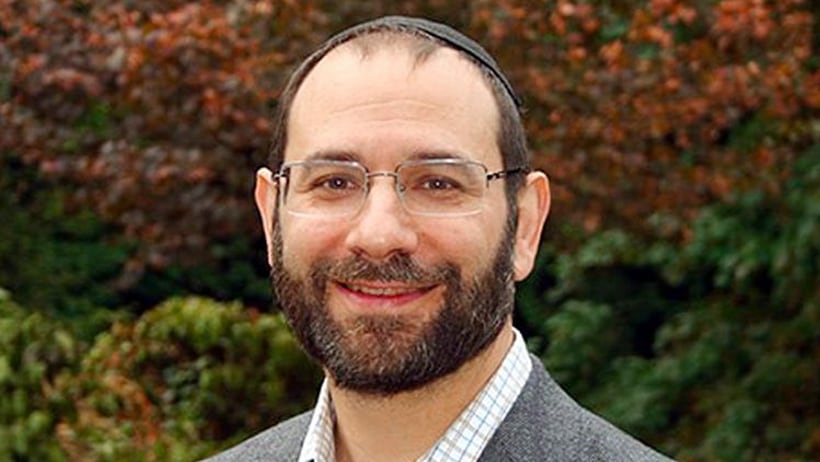Oasis Songs: Musings from Rav D
Friday, June 12, 2020 / 20 Sivan 5780
THROUGH A LENS OF FIRE: Hasidic Insights on the Torah continues on Wednesday June 17th at 12:30 pm. Please check the CNS calendar for the most up to date Zoom link.
Summary: This week’s Torah reading provides an example of God demonstrating antiracist behavior.These days, I have more questions than answers.
There’s not a lot of explicit material about race in the Torah. Yet this week’s parsha deals with it, and the timing could not be more apt, even as the lesson being offered is not immediately explicit.

Here’s the scene: Aharon and Miriyam have gotten into a conversation about their brother Moshe’s choice in partner. “He married a Cushite woman!” The locale of Cush was associated with either Nubia or Ethiopia—parts of Africa.
That’s it. The entire discussion on race reduced to a single, strange sentence. Miriyam and Aharon continue talking now about Moses, questioning his capacity to lead because others, such as themselves, also have had direct contact with God. In other words, from their rationalized perspective, what makes one fit for leadership is the capacity to encounter God. As though to prove their point-and immediately undermine it—God pulls the three siblings aside into the Tent of Meeting. Uh oh, they’ve been called to the principal’s office.
Once they are gathered, God explains that it’s not just that you encounter God, it’s also how you encounter God. Moses, unlike any other human being (this is God talking), speaks to God face to face while the rest of the best can’t get any closer to God than a dream state. Stated simply, Moses really knows what God wants, and every one else has to guess at divine intentions.
Ok, if this section of the Torah ended right here, we might think that God was rebuking them for putting on airs, or for challenging Moshe’s leadership, or for imagining that they had a similar degree of prophetic power. Indeed, that is how our traditional commentators take it. But as God withdraws in a cloud, Miriyam is suddenly stricken with Biblical leprosy (m’tzora’at).
Aharon sees, and immediately apologizes, asking for forgiveness for their wicked folly. Moses, moved by his brother’s entreaty, prays to God to heal his sister. But God is apparently not in a forgiving mood. Rather, she is exiled from the camp for a week, a time out to consider her actions with Aharon. The reason our commentators give for this pause is because she spoke lashon hara—she Jewishly defamed Tziporra. l say Jewishly defamed, because in American defamation laws, one is held accountable only if your libel or slander is false. In Judaism, even a true statement that harms another’s reputation is not permitted.
Saying that Tzipporah was a Cushite was factually true. But it was still wrong, particularly since it intimates that her skin color was the problem. Moreover, the fact that Moses was consorting with a dark-skinned African woman was sufficient excuse for Miriyam and Aharon to try and wrest power from their brother. Their true statement was justification, in their minds, to create a new power structure that would privilege and benefit them while removing power from a mixed-race couple.
Yet God was not having it.
This year in particular, we can see that Moses saw beyond skin color. He married a dark-skinned foreigner and brought her into the Jewish community.
More importantly, we witness God engaged in anti-racist behavior. He doesn’t let it fester. He doesn’t give Miriyam and Aharon a free pass.
On the one hand, we Jews can take pride that this early morality lesson is contained in our Holy Torah.
On the other hand, we always must remember that the Torah is eternal. That means that it is not a book of history, but a guide book for how we are asked to live. The lessons it contains are ones we each must continually master. And each year, the lesson returns even as we may have changed.
Humans are a bit like infinite onions. There’s always another layer to our psyche, another stage of development. Wherever we may be standing in the thicket of racism, the Torah is asking us to shake free of that so that we can advance as individuals and as holy communities.
It’s good to know God is standing there with us, waiting to aid us in our moral evolution, as he did with Miriyam. We just have to be open to the lesson.
Shabbat shalom,
Rav D
Shabbat Table Talk
This week I invite you to discuss this very short section of the Torah above and draw your own lessons from it.
If you’d like to continue this discussion, follow this link to CNS’s Facebook page to share your own perspectives on the topics raised in this week’s Oasis Songs. Comments will be moderated as necessary.



